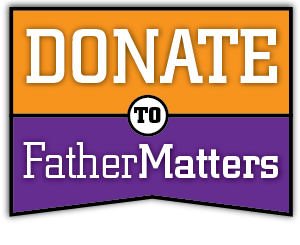Dangers of Artificial Sweeteners-Angela Montgomery
Currently, five artificial sweeteners are approved by the FDA:
- Aspartame, sold under the brand names NutraSweet and Equal
- Saccharin, sold under the brand name Sweet’N Low
- Sucralose, sold under the brand name Splenda
- Acesulfame K (or acesulfame potassium) widely used in foods, beverages and pharmaceutical products around the world.
- Neotame, produced by the NutraSweet Company; the most recent addition to FDA’s list of approved artificial sweeteners, neotame is used Artificial sweeteners, also known as sugar substitutes, are used to sweeten foods and drinks in the place of white sugar. Artificial sweeteners are regulated by the U.S. Food and Drug Administration (FDA) in diet soft drinks and low-calorie foods.
There are many people who will tell you that artificial sweeteners are safe, just ask the FDA. Then there are those on the other side of the argument who say they should never be consumed. Just like anything there are differing opinions.
No matter if you are for or against artificial sweeteners, there is one fact that remains, they are highly processed and made from chemicals.
Artificial sweeteners and the negative impact they can have on your health
Aspartame: Made from phenylalanine, aspartic acid and methanol.
Reported side effects: Headaches, fibromyalgia, anxiety, memory loss, arthritis, abdominal pain, nausea, depression, heart palpitations, irritable bowel syndrome, seizures, neurological disorders, vision problems, brain tumors and weight gain.
Concerns: Phenylalanine and aspartic acid directly impact brain and central nervous system functions; evidence shows they play a role in mood disorders, memory problems and other neurological illnesses.
Methanol is converted into formaldehyde when metabolized. Makers of aspartame say methanol and its byproducts are quickly excreted. But research has found measurable amounts of formaldehyde in the livers, kidneys and brains of test subjects after ingestion of aspartame.
At high temperatures, phenylalnine breaks down into (DPK) diketopiperazine , a known carcinogen. Phenylalnine is especially dangerous for people with the hereditary disease, (fennel keto nureea)phenylketonuria which is the inability to metabolize phenylalanine that causes brain and nerve damage if untreated.
Aceslulfame-K: Acesulfame-K is a potassium salt containing methylene chloride, a known carcinogen.
Reported side effects: Long term exposure to methylene chloride can cause nausea, headaches, mood problems, impairment of the liver and kidneys, problems with eyesight and possibly cancer. Acesulfame-K may contribute to hypoglycemia.
Concerns: Of all artificial sweeteners, acesulfame-K has undergone the least scientific scrutiny. Early studies showed a potential link between the sweetener and development of multiple cancers in laboratory animals.
Sucralose: Sucralose is a synthetic additive created by chlorinating sugar. Manufacturers say the chlorine in sucralose is no different from that in table salt. The chemical structure of the chlorine in sucralose is almost the same as that in the now-banned pesticide DDT.
Reported side effects: Head and muscle aches, stomach cramps and diarrhea, bladder issues, skin irritation, dizziness and inflammation.
Concerns: Research has shown sucralose can cause shrinking of the thymus gland, an important immune system regulator, and liver and kidney dysfunction. A recent study by Duke University found sucralose reduces healthy intestinal bacteria, which are needed for proper digestion and can impact the effectiveness of prescription and other drugs.
Saccharin: Saccharin is a sulfa-based sweetener; its primary ingredient is benzoic sulfimide.
Reported side effects: For those with sulfa allergies, saccharin may cause nausea, diarrhea, skin problems or other allergy-related symptoms.
Concerns: Early safety studies of saccharin showed the sweetener caused bladder cancer in rats. The FDA recently lifted the requirement that saccharin be labeled as a probable carcinogen on food packaging.
The link between saccharin and bladder cancer has contributed to saccharin being the most investigated of all artificial sweeteners. To date, no connection between saccharin and bladder cancer in humans has been proven.
Artificial Sweeteners Cause Weight GainMany people use artificial sweeteners to cut their caloric intake, but the very opposite effect can occur. New research shows that artificial sweeteners stimulate taste receptors that sense sweetness in both the esophagus and stomach. Anticipating energy, the pancreas releases insulin, an important hormone for accumulating body fat. At the same time, chemicals are sent to the brain’s satisfaction center, which becomes confused as to whether or not the body is actually receiving calories. The result is that you feel even hungrier and less full, which can lead to weight gain.
Artificial Sweeteners are Addictive
Research on artificial sweeteners shows that they affect the same parts of the brain that deals with addiction. Artificial sweeteners are much sweeter than natural sugars, such as those found in whole grains and fruits and can actually reset your taste buds. The body then builds up a tolerance, which can cause overuse.
Artificial Sweeteners May Be Causing you Trouble in the bathroom
Artificial sweeteners can cause you to go to the bathroom more often. They may cause the muscles in your bladder to become hyperactive – forcing you to urinate more frequently. Even one packet might be enough to cause you to urinate more frequently than normal. This can eventually wear out the bladder, increasing your risk for urinary tract infections and urge incontinence.
Recent reports are also linking specific sugar substitutes you eat every day to major digestive problems including diarrhea, cramps, gas and bloating. They are specifically called sugar alcohols, which are calorie-reduced sugar substitutes that include sorbitol and malitol, which are found in “sugar-free” gums, candy and baked goods.
Artificial Sweeteners May Be Linked to Diabetes
As the sweet receptors in your esophagus and stomach are “tricked” by the zero-calorie substitutes, your pancreas is tricked into sending a false spike of insulin that can lead to insulin resistance. This can lead to diabetes. Also, since artificial sweeteners cause your body to crave more food, you can also put on weight, which further increases your risk for diabetes.
What Can I Use To Sweeten My Food?
You may be choosing to avoid high fructose corn syrup, and white, refined table sugar, and that is a good thing. If you wish to also avoid artificial sweeteners here are a few good natural sweetener choices:
Honey: One of the oldest natural sweeteners, honey is sweeter than sugar. Depending on the plant source, honey can have a range of flavors, from dark and strongly flavored, to light and mildly flavored. Raw honey contains small amounts of enzymes, minerals and vitamins.
Maple Syrup: Maple syrup is made from boiled-down maple tree sap and contains many minerals. 40 gallons of sap are needed to make one gallon of maple syrup. It adds a pleasant flavor to foods and is great for baking. Be sure to buy 100% pure maple syrup and not maple-flavored corn syrup. Grade B is stronger in flavor and said to have more minerals than Grade A.
Coconut Sugar: Coconut sugar is made when the sap from the flower of the coconut palm is heated until the water evaporates leaving little granules behind. It retains a lot of the nutrients found in the coconut palm.
Stevia: This leafy herb has been used for centuries by native South Americans. The extract from stevia is 100 to 300 times sweeter than white sugar. It can be used in cooking, baking and beverages, does not affect blood sugar levels, and has zero calories. Stevia is available in a powder or liquid form, but be sure to get the green or brown liquids or powders, because the white and clear versions are highly refined. You can also grow it yourself!
Date Sugar: Date sugar consists of finely ground, dehydrated dates, utilizing this fruit’s vitamin, mineral and fiber content. If you like the taste of dates, this will definitely appeal to you. Date sugar can be used as a direct replacement for sugar and comes in a granulated form; however, it can clump, and doesn’t melt, making it an impractical substitution for certain baked goods and beverages.
Molasses: Molasses is probably the most nutritious sweetener derived from sugar cane or sugar beet, and is made by a process of clarifying and blending the extracted juices. The longer the juice is boiled, the less sweet, more nutritious and darker the product is. Molasses imparts a very distinct flavor to food. Blackstrap molasses, the most nutritious variety, is a good source of iron, calcium, magnesium and potassium.
Rapadura: This brand-name product is made from a process of extracting juice from the sugarcane plant, evaporating the water from the juice, and then grinding the results into a fine powdery texture. Rapadura is organic, rich in vitamins and minerals, especially iron, and unrefined.
Sucanat: Short for Sugar Cane Natural, this brand-name product consists of evaporated organic cane juice made through a mechanical rather than a chemical process, and thus less refined, retaining many of the sugarcane’s original vitamins and minerals. It has a grainy texture and can be used in place of white sugar.
As with all sweeteners please use all of the above mentioned sugar replacements in moderation.
Angela Montgomery is a wife, homeschooling mom, photographer, organic gardener and lover of all things natural. She is a certified holistic health coach who works individually with busy moms who need support reaching their health and weight loss goals. She also offers support with group health coaching, healthy recipes, healthy pantry makeovers and health seminars. You can find out more about Angela and the programs she offers at Real Whole Health You can also find her on Facebook, Pinterest or Twitter @RealWholeHealth




